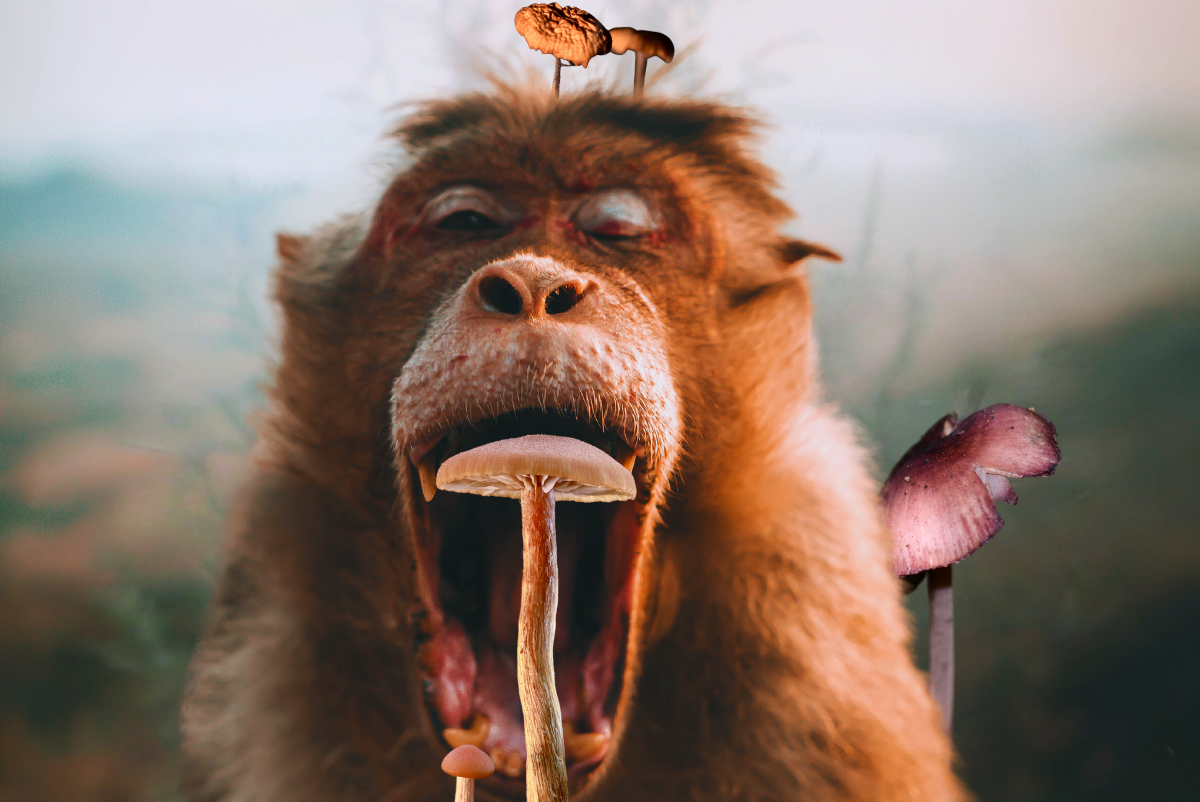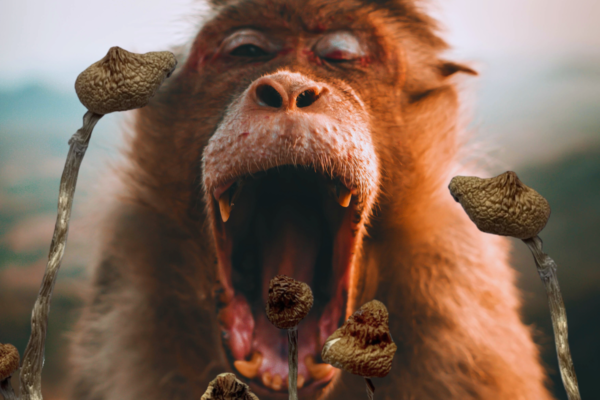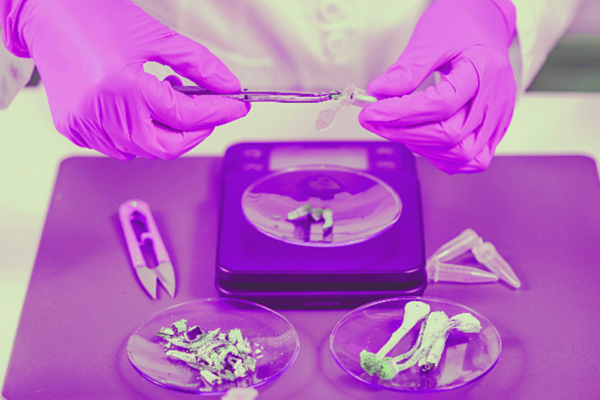
Almost anyone experienced with the use of psychedelic mushrooms can tell you that frequent, uncontrollable yawning is a small but noticeable part of the psychedelic experience. Many first-time users are surprised by this side effect because they struggle to find a logical explanation. They aren’t sleepy and not bored, but the yawning persists.
Although there is a lack of clear scientific explanation, attributed to legal restrictions on psychedelic research, numerous theories exist regarding the cause of yawning induced by shrooms. Additionally, empirical evidence suggests remedies for this uncomfortable side effect.
Should You Be Worried About Yawning During a Shroom Trip?
Since it’s common to yawn frequently during a psychedelic trip, you shouldn’t worry about it if it happens to you. Yawning is most commonly observed during the come-up phase when your digestive system is actively converting the ingested psilocybin into psilocin, the compounds responsible for inducing psychedelic effects.

Psilocybin and psilocin interact with serotonin receptors in the brain and have an especially high affinity for the 5-HT2A subtype receptors. In rats, psilocybin has shown a strong interaction with receptors in hub regions of the brain that integrate sensory experiences. This could also explain some other effects such as synesthesia, hearing colors or tasting sounds—and altered sensory experiences during shroom trips.
If you’ve consumed a large dose, your body may take longer to make this conversion, extending the come-up and its side effects. A moderate dose between 1-to-2.5 grams, taken orally, typically produces effects that could last from 3 to 6 hours. Once the psilocybin-psilocin conversion process ends, you can expect the yawning to stop and your trip to begin.
Even if you find it annoying, consider it a reassurance that you’ve ingested potent mushrooms and you’re preparing to take off into a cosmic psychedelic journey. To ensure a positive experience and minimize the risk of a “bad trip,” it is crucial to prepare both your mind and body. This involves reflecting on your goals and creating a comfortable and familiar environment, commonly referred to as your “set and setting.” By following this practice, you can enhance your overall experience and avoid any potential negative effects. For those interested in optimising their psychedelic journey, Psychedelic Spotlight has prepared an easy guide on “How to Prepare for Your First Psychedelic Trip in 5 Easy Steps.”
You may also be interested in Trip Do’s and Don’ts: What to Avoid During Your Psychedelic Experience.
Yawning: Why Do We Do It?
You may have noticed that humans yawn in response to various situations, making it challenging to pinpoint their exact cause. You may yawn during a boring class or presentation when you feel tired after taking some medications or during stressful situations.
Although yawning has been extensively studied, there isn’t a scientific consensus on its underlying causes. Instead, there are multiple hypotheses as to why it happens, and I’ll quickly go over each of them below.
Communication Hypothesis
Some studies view yawning as a way for humans to increase their critical consciousness and communicate that it has diminished. Critical consciousness is awareness of one’s environment, and boring or repetitive stimuli can blunt it.
This would explain why yawns are contagious, as it would be a way to heighten the consciousness of fellow humans for survival purposes.
Respiratory Hypothesis
The respiratory hypothesis proposes yawning as a mechanism for the body to oxygenate itself. When CO2 levels in the blood rise, the massive inspiration of oxygen and exhalation of CO2 produced by a yawn quickly restores normal oxygen levels.
While this theory was prevalent since Johannes de Gorter proposed it in the 18th century, it was proven false in 1987. A study by Robert Provine demonstrated that humans don’t yawn more frequently when exposed to gas mixtures with high levels of CO2 or during physical exercise.
Some redditors explain why shrooms make you yawn in simpler terms. “So yawning is a way we PEEP ourselves. PEEP is an acronym for positive-end expiratory pressure. It’s helps keep the alveoli in our lungs inflated to get more oxygen into our blood. When we trip, our respiratory rate normally drops below our baseline, and then your brain is like, “hey we need more oxygen. Yawn.” It’s a very minuscule drop in oxygen saturation, so don’t freak out about it. It’s just your body’s way of maintaining homeostasis.”
Brain Cooling Hypothesis
The brain cooling hypothesis suggests that yawning is a compensatory mechanism that cools down our brain to maintain optimal mental efficiency when all other regulatory agencies fail.
Andrew C. Gallup studied the effectiveness of cooling down the brain through nasal breathing or external cooling to avoid contagious yawning. He found that both methods considerably reduce the incidence of yawns.
This discovery offers us a concrete way to tackle this issue and some more alternatives, which I’ll delve into in the following section.
Psychological Factors
Some psilocybin facilitators look at yawning as a predictor of a person’s response to a larger dose. In some psilocybin retreats, facilitators initially dose their patients with a 0.5 grams of shrooms in order to gauge their physical response and to assess how they may respond to a higher dose. Excessive yawning caused by a small dose could potentially mean that the person is influenced by psychological factors such as anticipation, anxiety, or excitement related to the psychedelic journey. Yawning could also signal initial discomfort. When facilitators notice this side effect in people consuming small doses, they may prepare pumpkin pie which will be consumed before a heroic dose mushroom experience. Pumpkin seeds are packed with magnesium and can also help regulate electrolyte balance and blood pressure which can assist in reducing symptoms of stress and anxiety. Pumpkin seeds also contain tryptophan and tyrosine which seem to play a role in mood regulation because as they are precursors to serotonin and dopamine, which play a role in regulating anxiety and stress.
Increased Serotonin & Dopamine Levels
As mentioned above, psilocybin and psilocin interact with serotonin receptors in the brain. A 6-week placebo-controlled trial using citalopram, a commonly used antidepressant, observed yawning as a side effect of the treatment. Research has linked yawning to dopamine levels. Other neurotransmitters that affect yawning are nitric oxide, serotonin, norepinephrine, acetylcholine, glutamate, γ-aminobutyric acid, oxytocin, and other neuropeptides; “these have been shown to increase yawning when injected into the hypothalamus of animals.”
Ways to Prevent or Reduce Yawning During a Trip
Based on anecdotal evidence, there might be a correlation between dosage and yawning frequency. If you’re yawning too frequently to the point it causes discomfort, consider ingesting a lower dose of shrooms the next time you decide to embark on a psychedelic trip.
Another way you can prevent yawning and improve your overall experience is to lemon tek your mushrooms. This practice consists of grinding your shrooms into fine pieces and mixing them with the juice of one or two lemons or limes in a bowl or glass. Let the mixture sit for 20 minutes, stirring every 5 minutes to ensure most of the psilocybin has time to convert into psilocin in the acid substance. Don’t let it sit for more than 30 minutes since psilocin can quickly oxidize and break down.
Once it’s ready, you can consume the mixture as is or dilute it for a milder taste. By converting some of the psilocybin into psilocin before ingestion, the come-up will be quicker and easier on your stomach. Since most yawning occurs during the onset of effects, you’ll yawn much less.
Read also: How to Make Lemon Tek for a More Potent Magic Mushroom Experience.
If you haven’t taken these precautions and are currently yawning, there are some techniques you can apply to make this annoying reflex stop. Psychologist Andrew C. Gallup found that there are two main ways to stop yawning.
Ways to step yawning:
- Breathing through the nose
- Pressing a cold compress to your forehead
Since yawning is our body’s way of regulating the brain’s temperature when other regulatory mechanisms fail, it can be prevented by cooling down the brain through different means.
One of them is breathing through the nose, and you can stop a yawn by closing your mouth and inhaling deeply. The other method consists of pressing a cold compress to your forehead, as the temperature in this region affects your brain’s temperature directly.
Final Thoughts
While it’s frustrating to lack a concrete scientific explanation that relates mushroom consumption to frequent yawning, there is a plethora of clinical trials investigating the therapeutic benefits of psilocybin mushrooms. In fact, it is quite possible that the FDA may approve psilocybin therapy for the treatment of resistant depression by 2025, provided that the largest Phase 3 psilocybin clinical trial validates previous positive results. The FDA’s recent guidance for psychedelic clinical trial design is a clear nod to the scientific community and its desire to explore these substances in depth without clashing with government regulations.
For more information: The FDA Issues Guidance on Designing Psychedelic Clinical Trials.
If you’re currently on mushrooms and have clicked on this article looking for reassurance, remember that this is a common side effect and nothing to worry about. The methods presented in the previous section will help you stop or reduce yawning if it’s frequent enough to bother you.





